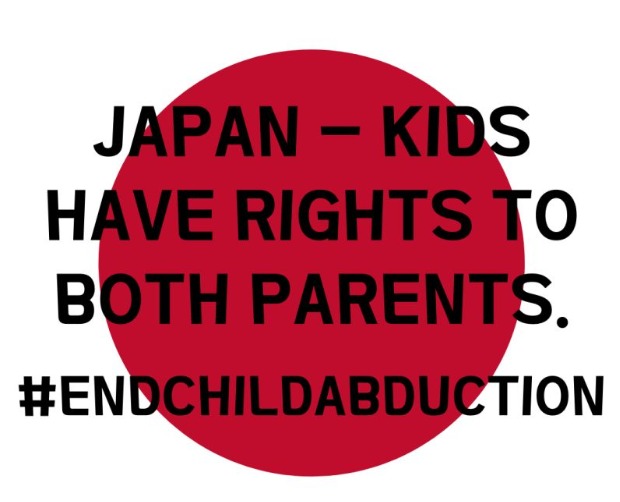- info@ihope.world
- Mon - Sat: 09.00 am - 05:00 pm
Country Report: Japan
Japan is internationally known as a black hole for child abduction for its consistent failure to return kidnapped children and was named as a top-three worst offender by the US Department of State.
You might be surprised to hear that the so-called developed and tech-savvy Japan is also known as the black hole for child abduction. The country has earned this term over decades of not just turning a blind eye to parental abductions but effectively encouraging it through its sole custody and authority laws.
Japan is unusual among developed nations in not recognizing the concept of joint custody. Instead, courts give custody to one parent, applying what is known as the ‘continuity principle’ — which translates to ‘if the child is settled in one household, don’t disturb him or her.’ Not only does the law not punish a parent who absconds with a child, it rewards them. Once the new household is established, the court unfailingly awards custody to the kidnapper.
Routine divorce cases can quickly turn into cases of alienation and even abduction because of the country’s failure to implement joint custody and authority laws. When a couple divorces in Japan – regardless of nationality – only one parent can retain sole parental authority and custody unless parents agree to joint custody on their own. This means that the non-custodial parent is at the mercy of the custodial parent to see, interact or even speak with their children. That parent has no right to access to or make any decisions regarding their children’s schooling or health. The children can, in fact, be adopted by a stepparent or other family member without notifying or getting the consent of the biological, non-custodial parent, effectively erasing the left-behind parent out of the child’s life. It is not uncommon for a child to never see their parent again after divorce.
The problem is deeply rooted in Japanese culture. Traditionally, children are not viewed as individuals with rights, or as belonging to their parents, but as the ‘property of the household’ where they live. As soon as children move to a new household, the estranged parent becomes an outsider, with no right to disturb the new household.
Unfortunately, domestic, and international parental abductions happen around the world but there are few countries where parents are encouraged to abduct their children. Well, expect for Japan.
However, article 224 of the Japanese penal code recognizes that abduction of a minor, regardless of who abducted the children, is a criminal offense. The problem mostly lies in the operation of the law, not the law itself. In fact, when a parent tries to find his/her abducted children, they face the risk of being arrested on kidnapping attempt charges (in which case article 224 of the penal code is used as a justification for the arrest). This can happen even if the left behind parent still possesses full parental authority and has no restrictions on seeing his or her children.
The rule is simple. The first kidnapping is free. This failed system means that is it essentially a race to see who kidnaps their children first. The threats are real. Australian Scott McIntyre spent 45 days in Japan in 2019 trying to check on the well-being of his children his wife had kidnapped a few months before.
Parental abduction does not discriminate in Japan with every social class, ethnicity, and gender being at risk. Though international media often focuses attention on the abduction of children of non-Japanese fathers, the reality is that most abducted children have two Japanese parents, and a growing number of abductors are Japanese fathers.
The most devastating part is the effect on children. It is estimated that every hour 24 children lose access to a parent in Japan. The effect on children’s socio-economic and psychological well-being is significant. More than half of children living in single-parent households live under the poverty line. Japan also has one of the highest child suicide rates in the world, with most children citing family problems as a reason. Recorded child abuse has also hit record highs. Japanese family law is to blame for these horrendous statistics. Would Japan implement joint custody and authority as just about every other country in the world has, children would be less prone to being abused or living in poverty as a second parent and extended family would have the right and ability to follow-up on their child’s care and well-being.
You may wonder why this is able to continue in the twenty-first century. The reality is that the sole custody law is fueled by corruption and private interests that be no means consider the best interest of children. Lawyers receive a hefty 30% of all child support payments until a child reaches the age of 20, which naturally encourages them to push their clients towards sole custody or adduction as this means a higher child support payment. Often, the only place non-custodial parents can visit their children are through pricey visitation centers run by former judges – and that remains at the consent of the custodial parent. Most parents are afraid to allow their ex-spouse unsupervised visits as they fear child abduction because the current system would allow it. So, it is only through these centers that they can get a peace of mind. Clearly judges and lawyers want to keep their large cut of the pie but how far are they willing to go in a country that is struggling to encourage its citizens to marry and start a family and ultimately to sustain its population?
But changes are underway. In November 2021, five Japanese News channels reported the issue of child abduction for the first time when France issued an Interpol arrest warrant for Vincent Fichot’s wife on kidnapping and abuse charges. Fichot was able to obtain such a warrant thanks to his children possessing French nationality although the children had been kidnapped on Japanese soil. This highlighted the weakness in the Japanese law operations. In the last four years, Vincent tried to file a criminal complaint for child abuse and child abduction four times to the Japanese police. None of his attempts succeeded. In return the police, as usual, threatened to arrest him on kidnapping charges in case he tried to see his children. To this day, he is still married and has full parental authority.
In the months following the news, the Head of the National Police Agency of Japan made a surprising announcement. He instructed his departments to facilitate the registration of complaints of abduction of minors in the case of unilateral removal of a child. Specific awareness-raising will be provided to police officers in charge of complaints, and a dedicated phone number will be set up to remedy any malfunctions observed. And so, for the first-time dozens of parents in Japan have been able to go to the police to claim the abduction of their children by their spouse.
It is yet to be seen whether the police will follow up on these complaints and the prosecution will faithfully observe the law but members of the Japanese parliament such as Masahiko Shibayama are closely monitoring the evolution of practices in Japan and the proper operation of existing laws going forward, including article 224 of the Japanese penal code on Abduction of Minors.

Search
Causes


SUBSCRIBE
Instagram Feed
- Made by iHOPE - Copyright 2025
- Info@ihope.world


Leave a Reply